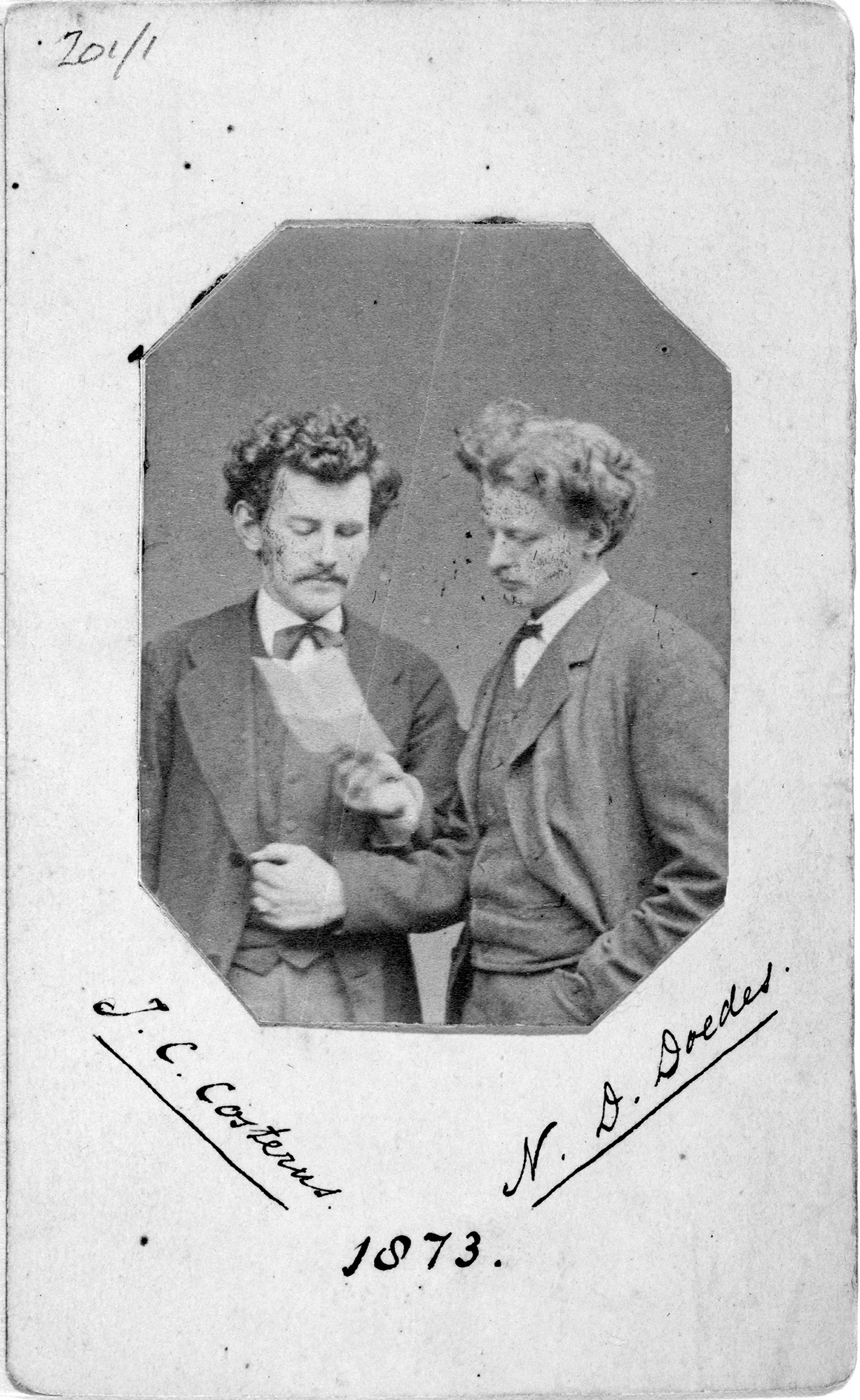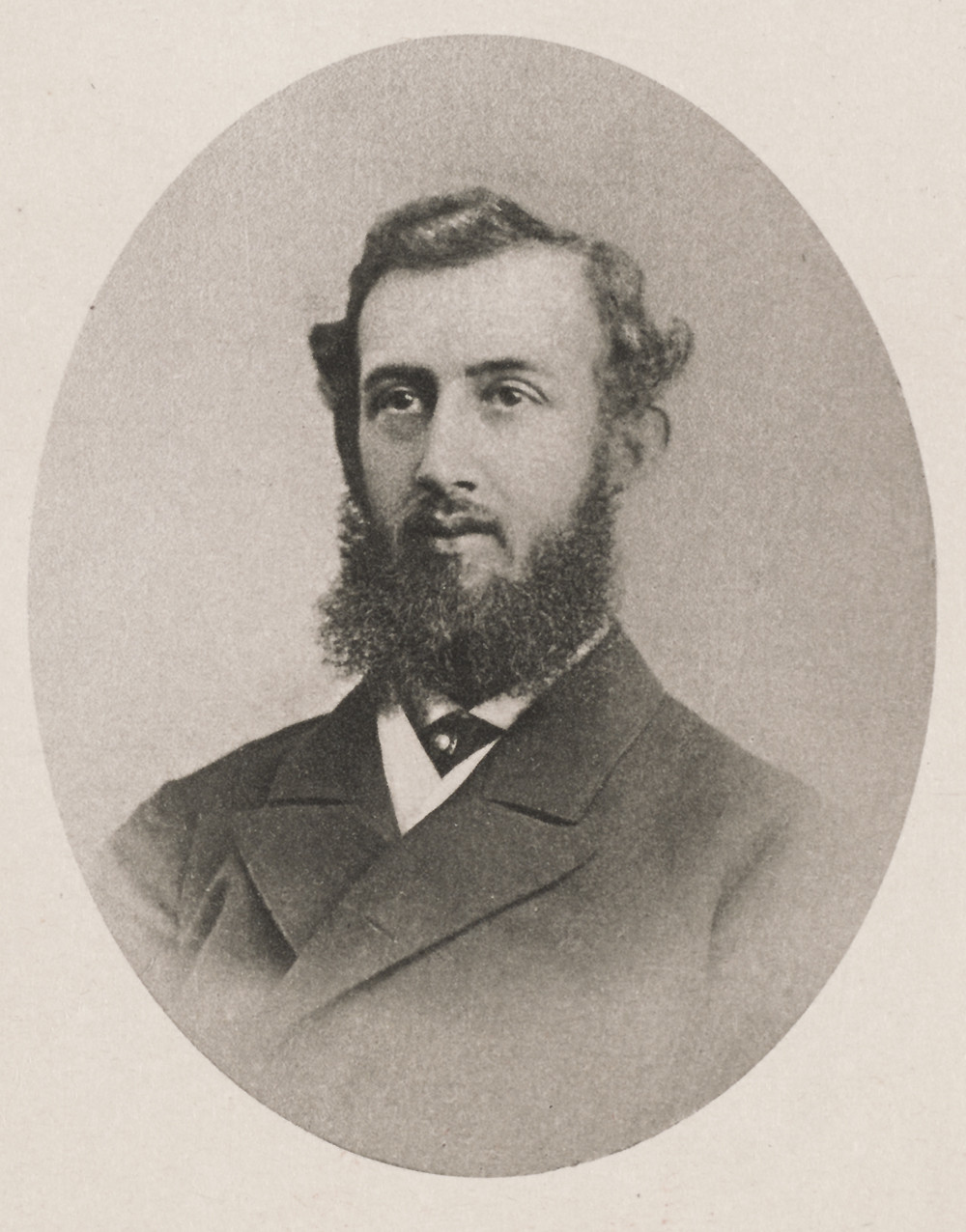Bad Request
Your browser sent a request that this server could not understand.
Apache Server at dcp-public.lib.cam.ac.uk Port 443

Darwin in letters, 1874: A turbulent year
Summary
The year 1874 was one of consolidation, reflection, and turmoil for Darwin. He spent the early months working on second editions of Coral reefs and Descent of man; the rest of the year was mostly devoted to further research on insectivorous plants. A…
Matches: 14 hits
- … over an anonymous review that attacked the work of Darwin’s son George dominated the second half of …
- … been the naturalist and traveller Alexander von Humboldt’s 105th birthday, Darwin obliged with a …
- … The death of a Cambridge friend, Albert Way, caused Darwin’s cousin, William Darwin Fox, to …
- … led Darwin to the self-assessment, ‘as for one’s body growing old there is no help for it, & I …
- … The year started for Darwin with a week’s visit to London, staying at his brother Erasmus’s house. …
- … had suggested a new edition of the coral book in December 1873, when he realised the difficulty a …
- … vol. 21, letter to Smith, Elder & Co., 17 December [1873] ). Darwin himself had some trouble …
- … of human evolution and inheritance himself. In August 1873, he had published in the Contemporary …
- … the use of the Down schoolroom as a winter reading room in 1873 (see Correspondence , vol. 21, …
- … a week ( letter from E. E. Klein, 14 May 1874 ). John Burdon Sanderson sent the results of his …
- … He also did experiments with pepsin ( letter from J. S. Burdon Sanderson, 25 April 1874) , and …
- … with his lecture at the Royal Institution ( letter to J. S. Burdon Sanderson, 21 March 1874 ). …
- … the contraction of Dionaea leaves in Nature (Burdon Sanderson 1874). Hooker also gratefully …
- … ( letter to J. D. Hooker, 20 July [1874] ). In 1873, Hooker had begun a series of …

Darwin's in letters, 1873: Animal or vegetable?
Summary
Having laboured for nearly five years on human evolution, sexual selection, and the expression of emotions, Darwin was able to devote 1873 almost exclusively to his beloved plants. He resumed work on the digestive powers of sundews and Venus fly traps, and…
Matches: 19 hits
- … and the expression of emotions, Darwin was able to devote 1873 almost exclusively to his beloved …
- … and Cross and self fertilisation (1876). Darwin’s son Francis became increasingly involved in …
- … renouncing plans for a medical career to become his father’s scientific secretary. Darwin had always …
- … The subject was brought closer to home by Francis Galton’s work on inherited talent, which prompted …
- … efforts to alleviate the financial troubles of Anton Dohrn’s Zoological Station at Naples. …
- … to observe, which I ought to have observed” ( letter to J. D. Hooker, 12 January [1873] ). …
- … wicked will on it—root leaf & branch!” ( letter from J. D. Hooker, 12 January 1873 ). …
- … properties analogous to those in Drosera . Darwin’s experiments on plant movement and digestion …
- … copy of the Handbook for the physiological laboratory (1873), a detailed guide to animal …
- … an abstract of his preliminary results on Drosera to Burdon Sanderson, who had performed …
- … , and had specimens delivered to the Brown Institution. Burdon Sanderson used a galvanometer (a …
- … Darwin’s other main focus of botanical investigation in 1873 was cross- and self-fertilisation, work …
- … & correlated” ( letter to T. H. Farrer, 14 August 1873 ). Darwin worried, however, that …
- … when it will be ready” ( letter to John Murray, 4 May [1873] ). Keeping it in the family …
- … their burrows” ( letter from Francis Darwin, 14 August [1873] ). In September, Darwin …
- … could be transmitted to its offspring ( letter from J. T. Moggridge, 1 February 1873 ). …
- … friend— but he is a deal too sharp” ( letter from J. D. Hooker, [7 April 1873] ). A group …
- … forced him to take periodic breaks from work ( letter to J. D. Hooker, 21 February [1873] ). They …
- … new facts which I have to compare & judge of” ( letter to J. D. Hooker, 20 December [1873] ). …

Darwin and vivisection
Summary
Darwin played an important role in the controversy over vivisection that broke out in late 1874. Public debate was sparked when the Royal Society for the Prevention of Cruelty to Animals brought an unsuccessful prosecution against a French physiologist who…
Matches: 13 hits
- … was sympathetic to the cause, but found some of Cobbe’s rhetoric inflammatory, and he strongly …
- … research on insectivorous plants. Indeed, some of Darwin’s plant experiments, such as applying toxic …
- … Such work had drawn him into close contact with England’s leading physiologists, John Scott Burdon …
- … for the physiological laboratory (Klein et al . 1873), which became a focus of criticism in the …
- … because it failed to mention anaesthetics. Darwin’s indebtedness and allegiance to …
- … affection for animals and antipathy to cruelty. Darwin’s fondness for animals, especially dogs, is …
- … ‘an English gentleman would not himself give a moment’s unnecessary pain to any living creature, and …
- … Vivisection was a sensitive subject within Darwin’s family. In his letter of 14 January 1875 to …
- … the bill on vivisection, he consulted with Huxley and Burdon Sanderson, with legal experts Godfrey …
- … of Derby. The resulting document went through many stages. Burdon Sanderson first drew up a …
- … [4 April 1875] ). This was evidently passed back to Burdon Sanderson, who drafted a memorial, …
- … already been prepared for the House of Lords (see letter to J. S. Burdon Sanderson, [11 April 1875 …
- … (letter from T. H. Huxley, 19 May 1875 , letter from J. S. Burdon Sanderson, 23 May [1875] ). …

Animals, ethics, and the progress of science
Summary
Darwin’s view on the kinship between humans and animals had important ethical implications. In Descent, he argued that some animals exhibited moral behaviour and had evolved mental powers analogous to conscience. He gave examples of cooperation, even…
Matches: 11 hits
- … Darwin’s view on the kinship between humans and animals had important ethical …
- … worm on a hook (‘Recollections’, pp. 358, 388). Darwin’s concern for animals aligned with that of …
- … hour of his life’ ( Descent 1: 40). Darwin’s closest encounter with vivisection came in …
- … theory to apply to plants. He added, however that Galton’s experiments were ‘extremely curious’, and …
- … to those performed on dogs and other animals. Darwin’s work on insectivorous plants drew him into …
- … handbook for the physiological laboratory (Klein et al. 1873), a two volume work designed for …
- … letter to F. B. Cobbe, [14 January 1875] ). Darwin’s involvement in the vivisection …
- … to outside surveillance and interference. Vivisection’s critics included a number of eminent …
- … 4 January [1875] ) Darwin worked closely with Burdon Sanderson and Thomas Huxley to draft a …
- … defence. To bring more solidarity to the field, Darwin’s son Francis, and a number of his close …
- … its first meeting on 20 April 1882, the day after Darwin’s death. While Darwin was actively …

Darwin in letters, 1875: Pulling strings
Summary
‘I am getting sick of insectivorous plants’, Darwin confessed in January 1875. He had worked on the subject intermittently since 1859, and had been steadily engaged on a book manuscript for nine months; January also saw the conclusion of a bitter dispute…
Matches: 24 hits
- … Plants always held an important place in Darwin’s theorising about species, and botanical research …
- … the controversy involved a slanderous attack upon Darwin’s son George, in an anonymous review in …
- … V). Darwin remained bitter and dissatisfied with Mivart’s attempts at conciliation, and spent weeks …
- … of London, and a secretary of the Linnean Society, Darwin’s friends had to find ways of coming to …
- … the publisher of the Quarterly Review , in which Mivart’s anonymous essay had appeared. ‘I told …
- … feel now like a pure forgiving Christian!’ Darwin’s ire was not fully spent, however, for he …
- … The vivisection issue was a delicate one within Darwin’s family, and he tried to balance his concern …
- … paper sent me by Miss Cobbe.’ Darwin found Cobbe’s memorial inflammatory and unfair in its …
- … on 12 May, one week after a rival bill based on Cobbe’s memorial had been read in the House of Lords …
- … Emanuel Klein, a German histologist who worked with John Burdon Sanderson at the Brown Animal …
- … on vivisection , p. 183). Darwin learned of Klein’s testimony from Huxley on 30 October 1875 : …
- … medicine in London. Klein had assisted in some of Darwin’s botanical research and had visited Down …
- … Poisons, plants, and print-runs Darwin’s keen interest in the progress of physiology …
- … of protoplasm. He added the details of Brunton and Fayrer’s experiments to Insectivorous plants , …
- … I can say is that I am ready to commit suicide.’ Darwin’s despair over the revision process may have …
- … ). In the event, the book sold well, and Murray’s partner, Robert Cooke, politely scolded …
- … insects were observed in the field, and some of Darwin’s experiments on digestion were then repeated …
- … about the same time. As was the case with some of Darwin’s previous publications, however, the …
- … were finished. An elusive case Darwin’s attention seems to have been largely on …
- … between the men in 1874, and this was enhanced by Romanes’s visit to Down House: ‘The place was one …
- … remain one of the most agreeable and interesting of memory’s pictures.’ Though trained in zoology …
- … heavily on his son Francis, who had made the decision in 1873 to abandon his medical studies and …
- … and the local vicar George Sketchley Ffinden resurfaced. In 1873, Charles and Emma Darwin and the …
- … on the digestive properties of Nepenthes since 1873. ‘You are aware that Dr Hooker has worked …


